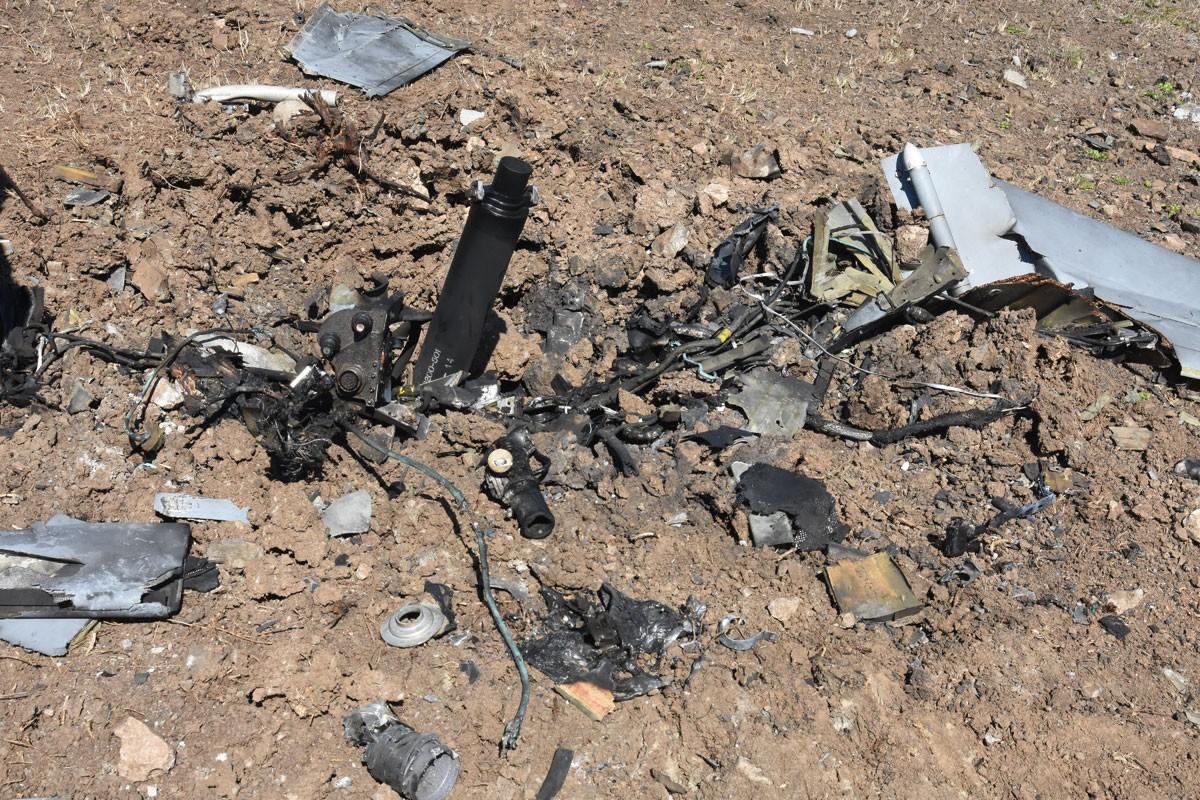
Drone Technology Used in Karabakh War: Swiss Manufacturer Responds to Hetq Expose
On December 2, Hetq published an article stating that in the recent Artsakh war, Azerbaijan used Israeli-made “kamikaze” UAV outfitted with Swiss and French-made parts.
The article reverberated in Switzerland; a country known for its policy of neutrality. This neutrality, however, is suspect given that Swiss technology is used by various manufacturers in the production of deadly weapons
Hetq Editor-in-Chief Edik Baghdasaryan and photographer Hakob Poghosyan found, studied, and photographed the Azerbaijani employed Harop drone hit by Artsakh anti-aircraft guns near Shushi on October 18, also known as the “kamikaze” UAV. It is manufactured by Israel Aerospace Industries (IAI). In our article, we singled out two parts of the kamikaze drone: the electric motor produced by the Swiss Faulhaber Minimotor SA company and the potentiometer produced by the French Eurofarad company.
SRF, part of the Swiss National Broadcasting Corporation (SRG SSR) for the German-speaking population of the country (Switzerland has four official languages: German, French, Italian and Romansh), has further covered the issue raised by Hetq. Our SRF partner, Tobias Gasser, received responses from the manufacturer's German parent company, Faulhaber, and the Swiss State Secretariat for Economic Affairs (SECO).
SECO wrote the following to the SRF:
"Legislation on the control of goods does not apply to such electrical devices (electric motors), and they can be exported without permission."
Such devices, according to SECO, can be widely used in industry. At the same time, SECO reported that the electric motor in question is not used to drive the drone, but to operate the folding mechanism of its wings. (Note that the Hetq team found two electric motors on the damaged UAV (see photo), one for each wing.)
Here, a question arises․ What difference does it make whether the whole weapon works with a Swiss-made part or just a section of it? Does this make it less important? In the pre-launch position, the wings of the Harop drones are bent, opening at the moment of launch. Thus, without the Swiss-made electric motor that opens the wings, the drone cannot fly. It cannot execute its killing capability.
Journalist Tobias Gasser asked the German Faulhaber Group if it could confirm that the parts produced by its Faulhaber Minimotor SA were used in the Nagorno-Karabakh conflict zone. He asked if the Swiss company supplies such devices to Israel Aerospace Industries. Gasser asked if Faulhaber knows that its electric motors are used in the Harop “kamikaze” drone.
The journalist pointed out that the Faulhaber Code of Conduct states that it respects human rights and seeks to comply with export-import rules. Thus, he inquired whether the company sees a contradiction between its code of conduct and the photos of the electric motors published in Hetq.
In response, the German conglomerate stated that the movement of its goods around the world is regulated by international export control rules.
Faulhaber said that these rules also applied in the case of the transfer of its parts on the Israeli UAV. Furthermore, the German manufacturer confirmed that the electric motor was manufactured in Switzerland, noting that the device is a gearbox (the product of Faulhaber Minimotor SA, technically known as a stepper motor - Hetq), which can exported without permission. According to Faulhaber, it produces such devices for various industries and exports them around the world. It said such equipment is used in medical equipment, ventilation systems, laboratory devices, automated systems, robotics, optics, aerospace equipment and other areas.
"We usually supply such components as part of electromechanical components, which in turn are installed in end systems," Faulhaber told Gasser.
After referring to the clarifications of the German manufacturer and SECO, Gasser notes, "If Armenia demands an answer from Switzerland, the Swiss ambassador will probably have to say, 'We are sorry, but it was an ordinary industrial product.' This is correct from a legislative point of view, but the damage done to foreign policy remains.”
Gasser also notes that drones today have become cheap, safe and effective means of warfare, and Switzerland is developing a high-tech industry that can later be used in military UAVs. And if that item is considered an ordinary product, it can reach Azerbaijan through Israel without permission.
"Politicians can tighten the screws and decide that all industrial products must be thoroughly inspected for their use and the target country. The economy will resist, arguing that if this is then case then lubricating oils must also be controlled. It is not possible," writes Tobias Gasser, adding, "The alternative is for Switzerland to come to terms with the fact that the 'Made in Switzerland' label has to fly in drone wars."
The Swiss German-language weekly Die Wochenzeitung (WOZ) also wrote about the matter, arguing that companies like Faulhaber Minimotor SA benefit from the sale of products not included in the lists of controlled products.
According to the newspaper, the German Faulhaber Group has seventeen subsidiaries, six of which operate in Switzerland. WOZ recalls that it has previously referred to three of these six (Faulhaber Precistep SA, Faulhaber Minimotor SA, and MPS Micro Precision Systems AG) that supply specific military products. The latter were produced for military purposes but are not considered as such weapons.
WOZ says that in 2017, Faulhaber's Swiss subsidiaries received a license to export special military goods worth some 4 million Swiss francs (about $4.5 million). The order received by MPS Micro Precision Systems AG was especially noteworthy. It is about supplying components worth more than 850,000 francs (about $960,000) categorized as "bombs, torpedoes and other missiles" to Israel. It is not known what specific components are being referred to.
"What happened in Nagorno Karabakh shows the role of Switzerland in the global arms business. The latter is an important supplier in the arms business worth billions. Many small and medium-sized enterprises specializing in precision technology benefit from multimillion-dollar arms contracts," WOZ writes, adding that these exports are not included in official statistics. "Like Faulhaber Minimotor SA, they are not perceived by the public as weapons manufacturers."
Referring to Israel, the Swiss weekly notes that since the 1970s the country has been a pioneer in the creation of UAVs and, along with the United States, is considered a superpower in the field. Referring to Drone Wars, an NGO based in Great Britain, WOZ writes that more than 10% of the total income from the export of Israeli weapons comes from drone exports.
 Videos
Videos Photos
Photos
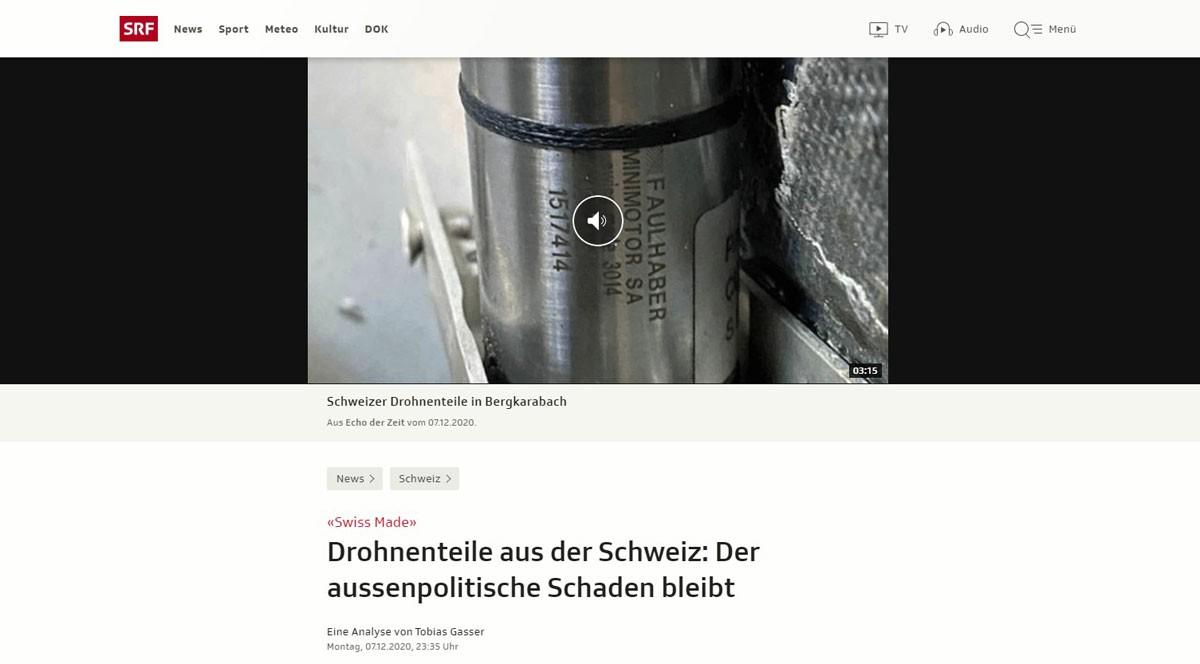
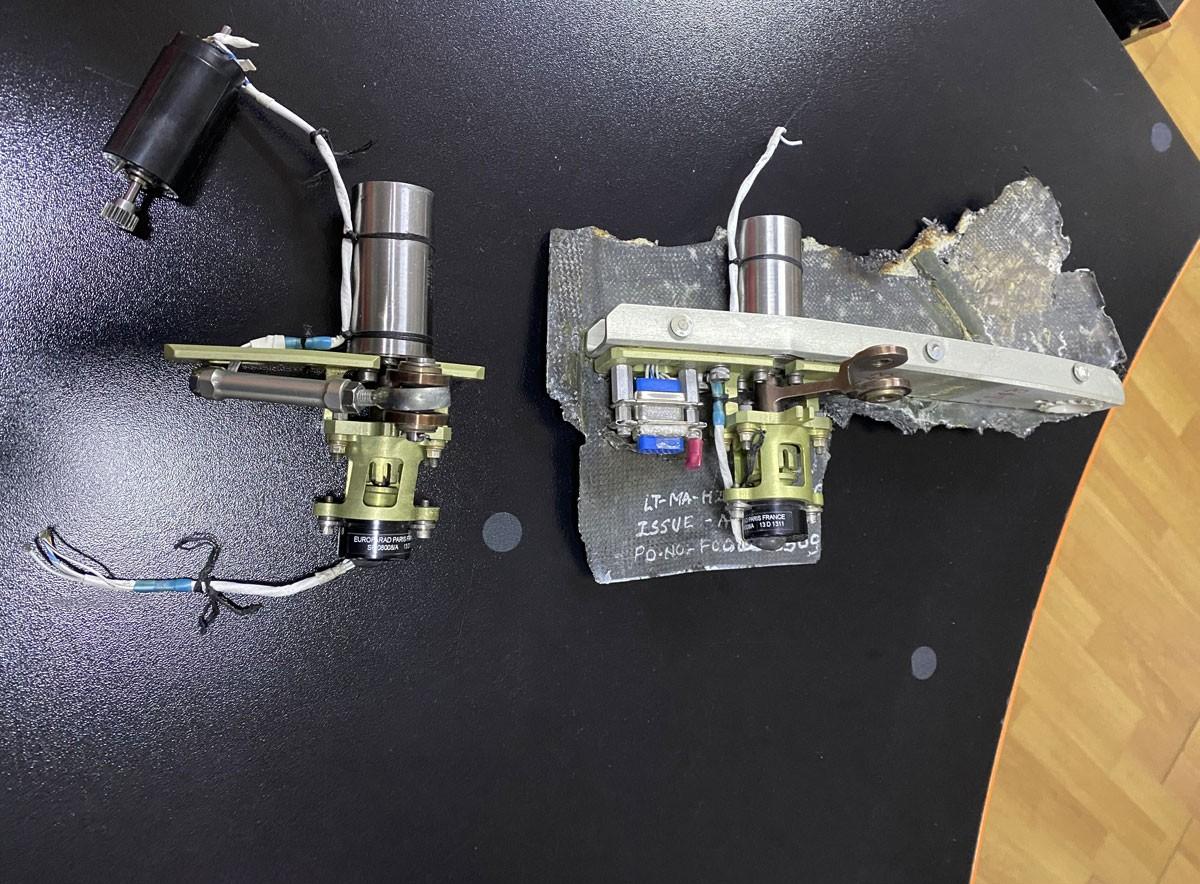
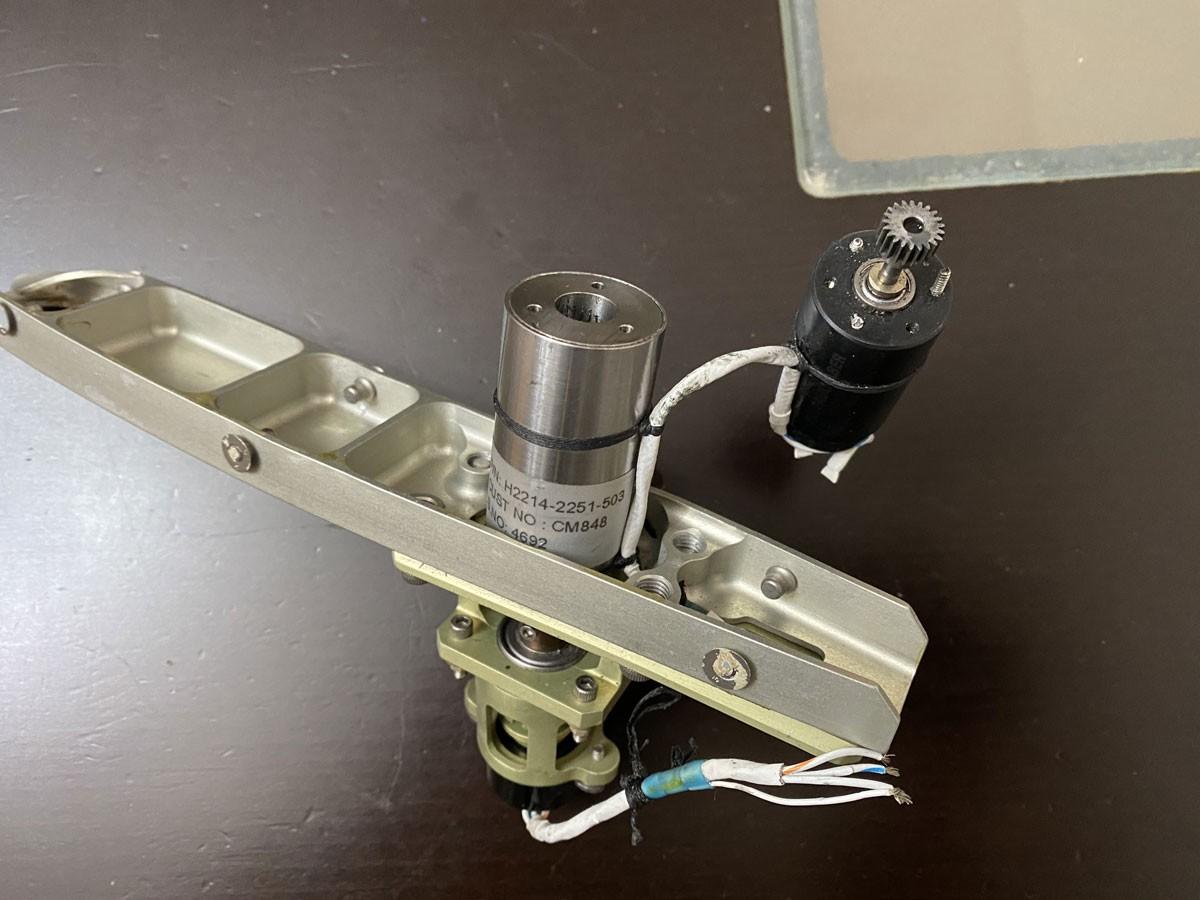
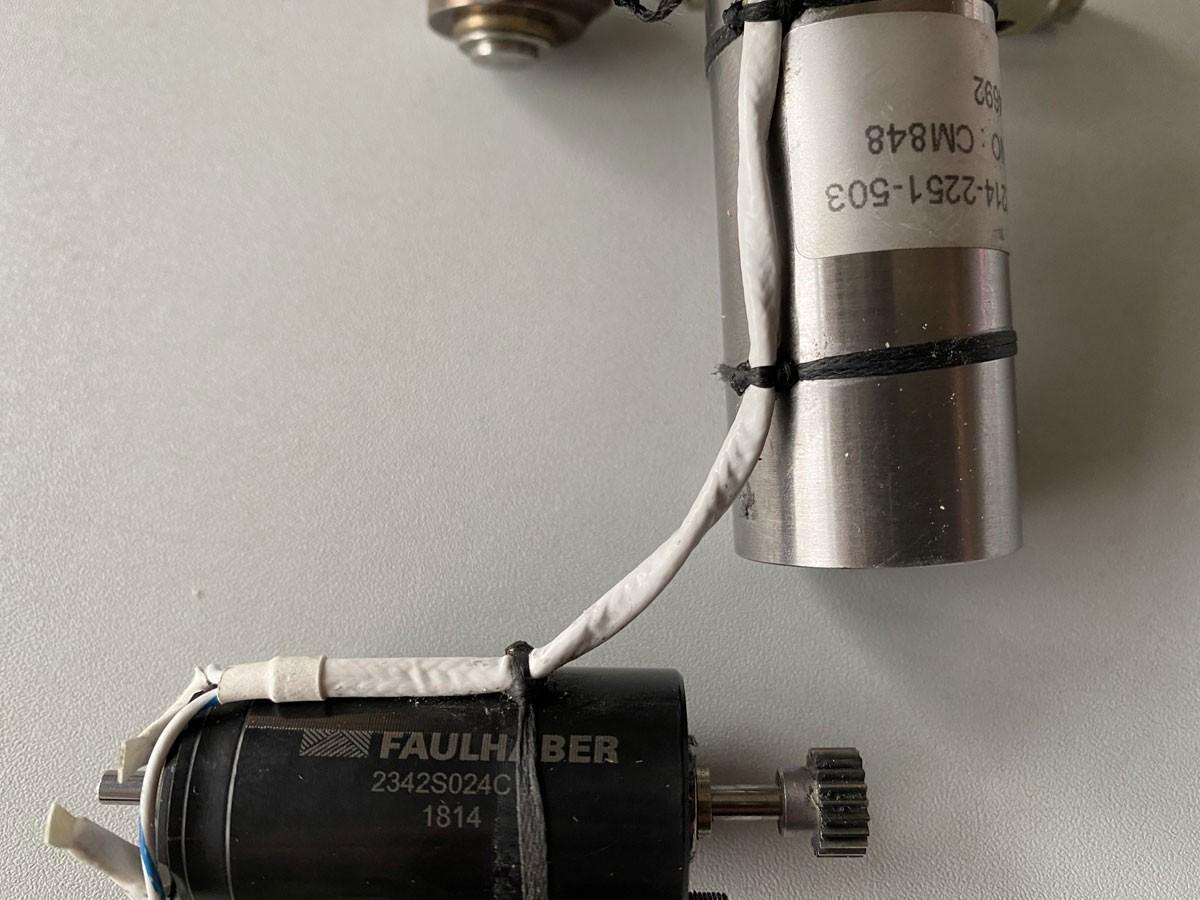
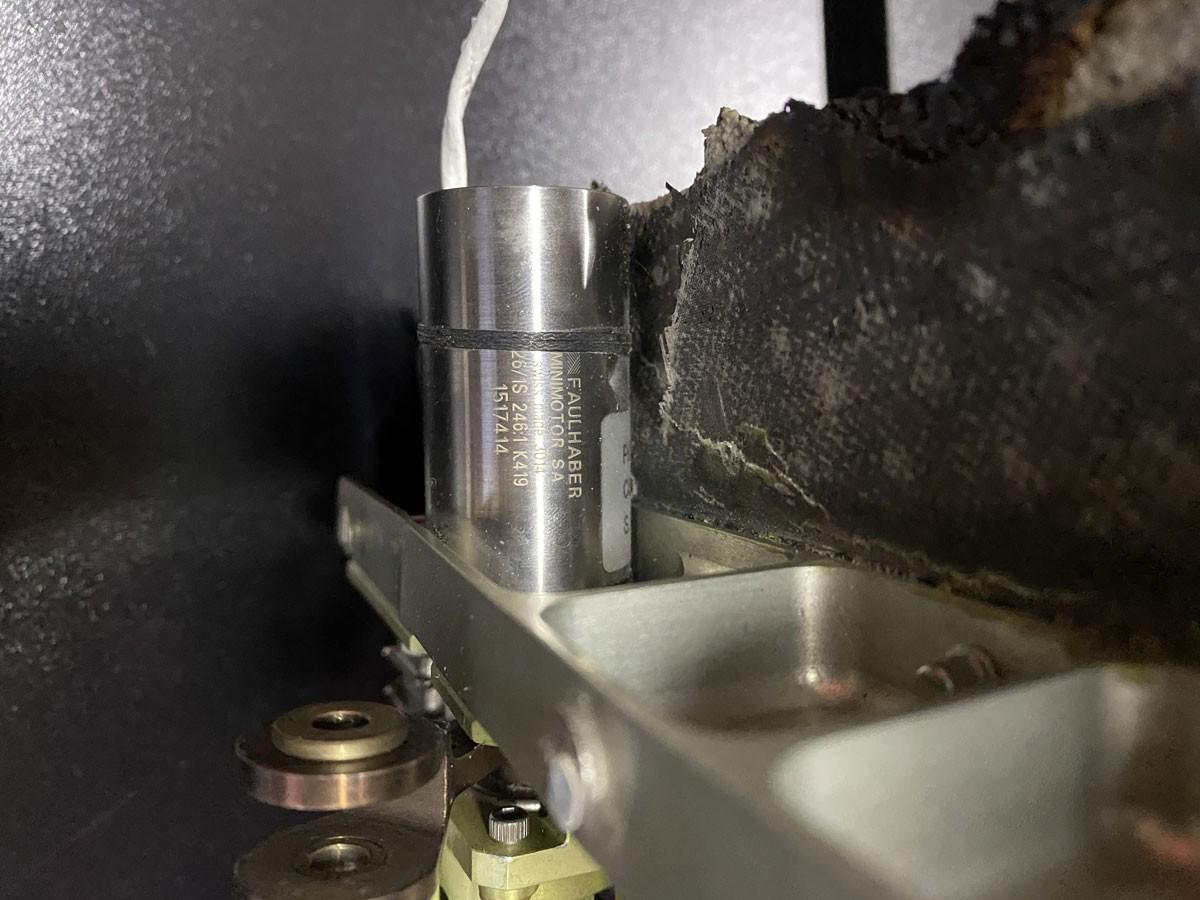
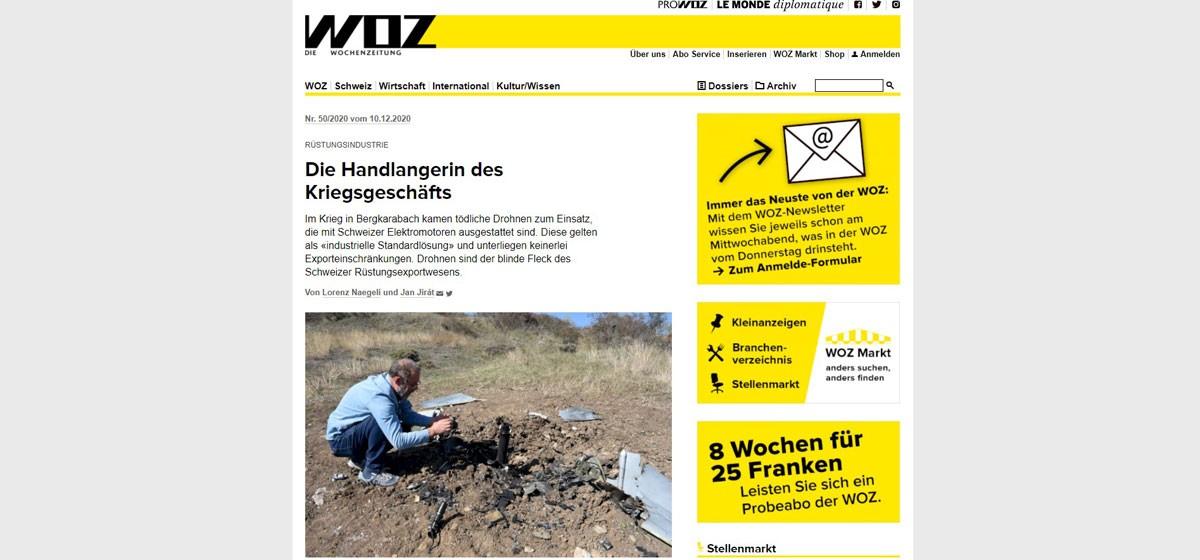
Comments (2)
Write a comment